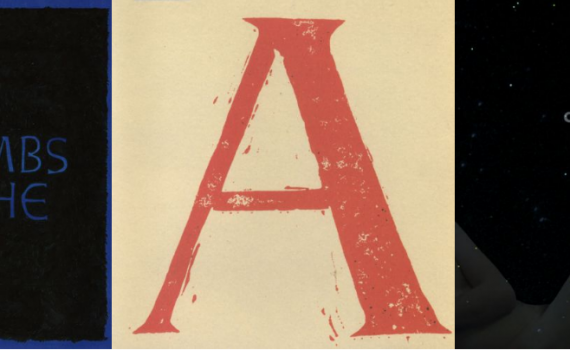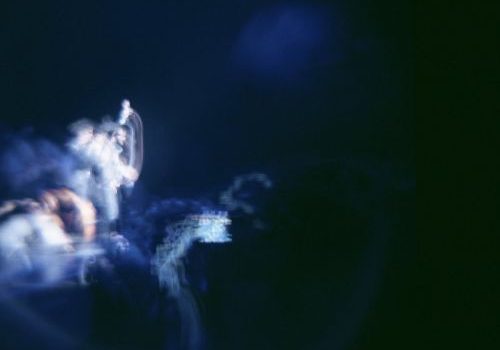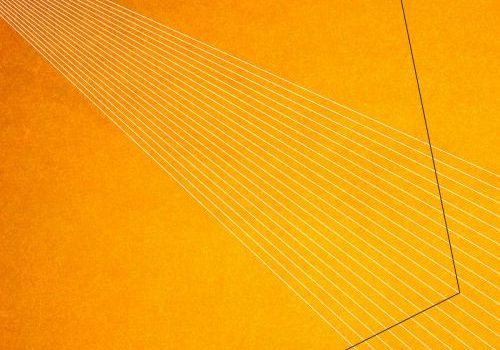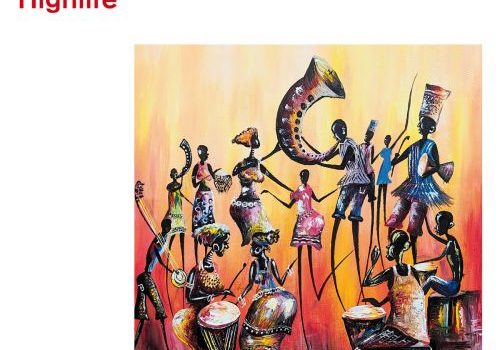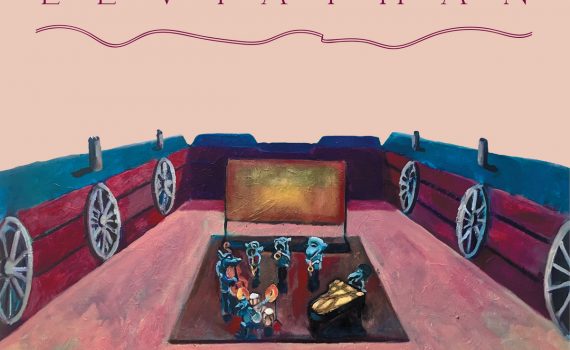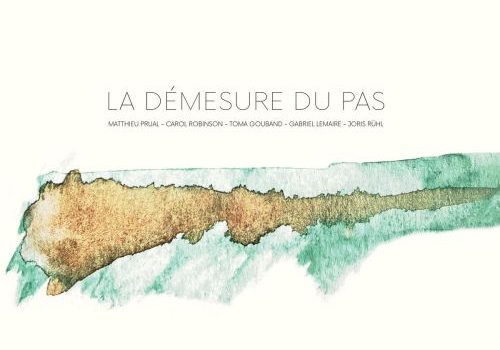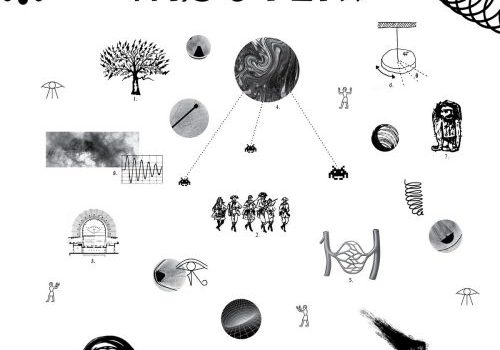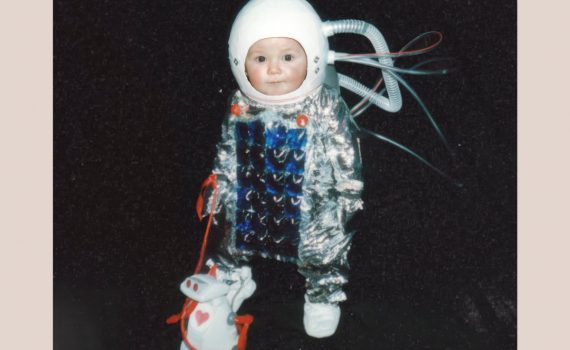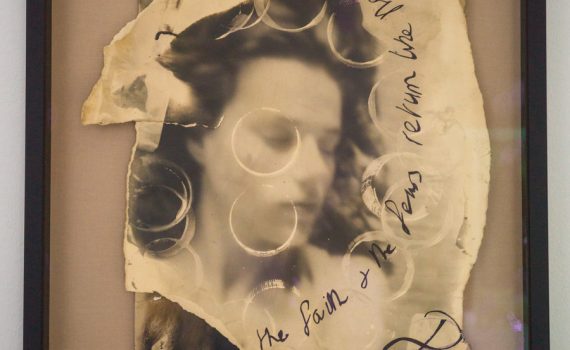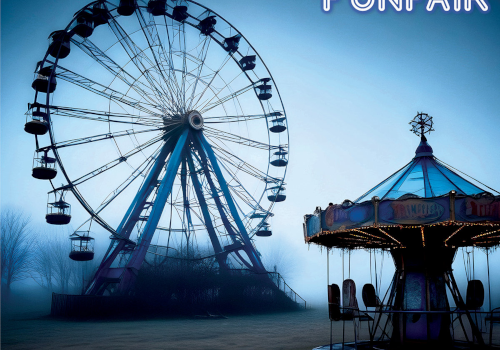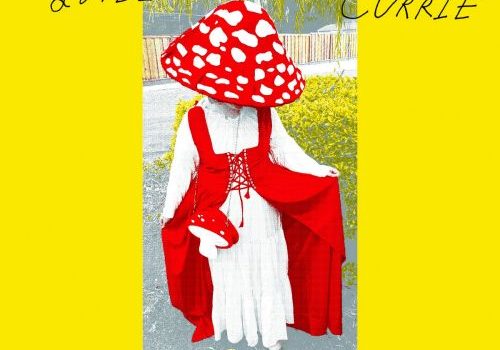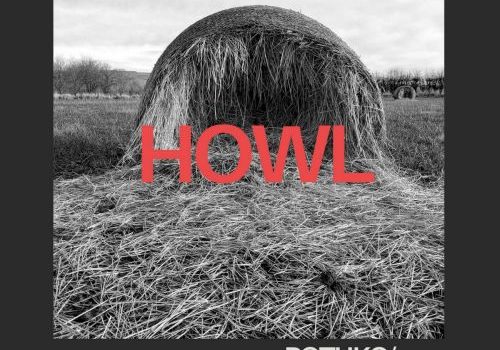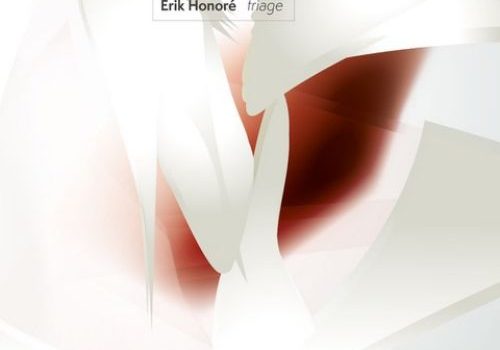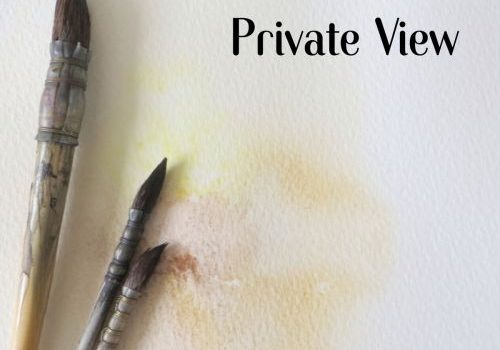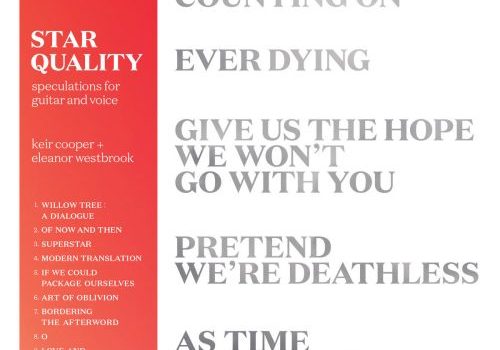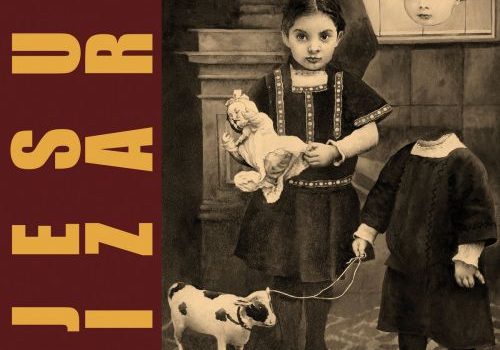After years of them being out of print, 4AD have taken the decision to repress the two LPs and an EP and allow them to straggle back out into the world, hopefully spreading their ramshackle charm to a new generation of listeners. Cass has been constructing his own little musical universe over the last quarter-century, so to listeners old and new alike, it is fascinating to rediscover how this journey started and all three of these releases are essential to that.
Mr Olivetti
Frise Lumière is an experimental project from composer Ludovic Gerst that uses just bass guitar in an attempt to explore the rhythmic, textural and percussive possibilities inherent in the instrument. Over the course of nine tracks, he uses broomsticks, mallets and other percussive implements to draw secrets from the body of the instrument, offering up unexpected sounds and feelings.
Congolese guitarist Niwel Tsumbu has been based in Ireland for the last twenty years and it would seem that the desire for travel and the stimuli of being a collaborative player in a European country has opened his mind and heart to a whole wealth of influences. Those influences, be they home-grown like soukous or more wide-ranging like flamenco or jazz, have enabled his elegantly fluid playing to become truly continent-spanning yet unique to him.
Although Ghanaian-born trumpeter Peter Somuah's latest release has the title Highlife, his is a unique interpretation of the musical style. Born in Accra, he is now settled in Rotterdam and with a group of four Netherlanders and a Dutch-Surinamese percussionist, plies a pan-continental version that shows its love of the African tradition while happily melding it with European influences. Recording the album in Berlin only adds to the constant sense of movement.
Moving from dramatic, classically influenced pieces through romantic introspection to more modernist tendencies, Leviathan contains eleven shape-shifting pieces which -- considering none are more than six minutes long -- are impressive showcases of the band's ability to let ideas flow, yet to be concise with nothing allowed to outstay its warm welcome.
French sound artistes Matthieu Prial and Christophe Havard have been exploring the possibilities of recording sound on the move in the form of walking concerts or just generally playing whilst in the elements for a few years now and the final fruits of their work together have been captured on this new disc.
The first release in four years under the Møster! moniker finds Kjetil Møster and his compadres stretching ever further the refinement of their genre-hopping sound. With more production work being taken on by Jørgen Træen, the quartet finds itself freer to pursue the ultimate in cross-pollination. With jazz as a distant reference point which seems to recede into the background, the album opens with a flourishing whirl of strings, wavering horns and an impending sense of drama, but soon breaks free and the quirky instrumentation and unexpected directions pull the listener in.
The latest release from musician Louis Pavlo is under his Apollo Ray guise with an LP of space-related electronic pieces that find him playing most instruments, but with assistance from various good friends.
Photographer Paula Rae Gibson is an intriguing character, well renowned in her chosen profession; she has also spent time writing and recording experimental jazz-based music, sporadically releasing albums on the 33 label. The latest on 33 Extreme finds her teaming up once again with pianist and composer Kit Downes and trumpeter Alex Bonney for an hushed, intense collection of late-night tales.
Clearly, the quintet line-up must have worked for all concerned, because this ever-progressive group has chosen to move forward as five. Somehow with the addition of new members and specifically an unfettered vocalist, more space has crept in, allowing the assembled pieces much more opportunity to breathe. There must have been a surfeit of ideas as the disc squeaks in at just over seventy-eight minutes; but as with all their previous output, those ideas are free range, roaming over whichever distant landscapes you might try to imagine.
The latest release from our favourite pastoral bedroom psychedelicist finds Robert Sotelo in the esteemed company of Mary Currie where they weave four treatsome tales from the heart and mind.
Soul Song The purple patch for composer and bass player Yosef Gutman continues with two more judiciously chosen collaborations released on his own Soul Song label. Clearly itching to release more music, guitarist Gilad Hekselman appears on Why Ten? They are joined by friend and long-time collaborator Gilad Ronen on reeds and Ofri Nehemya on percussion. For Unity, the sound is a little fuller as Yosef is not […]
For the last twenty-five years or so, Mark Beazley's Rothko has been an ever-evolving beast with a lot of this progression due to a number of carefully considered collaborations. This latest album involves old friend, Welsh composer Steve Parry. Steve's youthful memories of his mother playing the church organ invests a sepulchral air top his keyboard ruminations, but tempered with a metallic abstraction.
The intriguing collaboration between Jan, Erik and vocalist Sidsel Endresen on Punkt Live Remixes Volume 2 finds them sampling and remixing live pieces from the likes of Jon Hassell, 3 Trapped Tigers, Maja Ratke, Ensemble Modern and other luminaries, and with the addition of Sidsel's enigmatic vocalising, turning them into a series of diffuse, minimal atmospheres that give the listener pause to wonder quite how it has come about.
With just the two of them on an array of esoteric instruments including electric pencil sharpener, frog guiro, saxello and waterphone, they cover the most extraordinary textural ground and encompass works from the likes of Kandinsky, Pollock, Picasso and Monet. A clear labour of love, the pair bounced ideas backwards and forwards, editing down until twelve diverse and thought-provoking pieces emerged.
It is an intriguing proposition and one that veers over twelve diverse tracks from folk-inflected whimsy to stunning feats of acrobatic electrification. Star Quality starts out fairly simply with acoustic guitar and Eleanor's pure clarity, but with the interjection of a found voice that joins her in an unusual duet. "Willow Tree : A Dialogue" is the only piece with words and the found voice causes an electric bluster in the guitar, a sense of darkness developing as the vocals turns frantic and faintly upsetting.
Over six albums in the 1990s, The Jesus Lizard probably became the benchmark by which post-hardcore four-piece guitar bands were judged and more often than not, those being compared were found wanting. With a rhythm section described by Steve Albini as the best he had produced, a guitarist whose angularity and dissonance were second to none and an apparently unhinged and obfuscatory vocalist, they had it all. Choosing to bow out in 1998 with the under-appreciated Blue, they went on to various other projects so it was received with some surprise and a little trepidation when news arrived of a new album from the reconvened group.
Bristol 20 September 2024 Well this is a real trip down memory lane. Not only are Seefeel on the road (the last time I saw them was 1995) with the first new material in thirteen years, but they have brought AR Kane along with them to a sold-out Strange Brew. This relatively new venue is really beginning to find its feet in the city, putting on a whole […]
